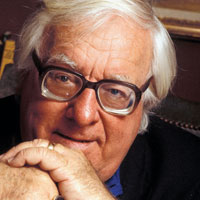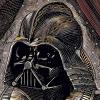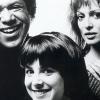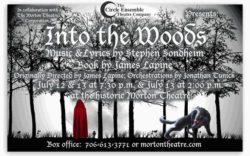Ray Bradbury has died after what the papers have called “an extended illness.†He was 91 years old. The death of a 91-year-old man is not particularly astonishing, and among the expressions of grief and remembrance that flooded the Internet as the news of Bradbury’s passing broke was a strong thread of surprise that the man had still been alive.
Alive he was, and although a stroke in 2009 had slowed him down, Bradbury was still working, the habits of a lifetime still driving him, the perpetual-motion machine of his imagination still barreling along. It is his imagination and his incomparable skill at breathing his dreams into life that make the occasion sad. Ray Bradbury was, without question, one of the greatest American authors of the last century, and history would do well to be kind to him.

Given my particular vocation, you’d think the Bradbury work closest to my heart would be Fahrenheit 451, his dystopian masterpiece about a future where books and their nasty old ideas have been outlawed and an underground resistance dedicated to preserving the Words. It’s a brilliant novel with many potent messages and, thank God, it has become a standard novel to teach in high schools.
My favorite work of Bradbury’s, however, is Something Wicked This Way Comes, about two Midwestern small-town boys caught up in a fight for their very souls when a dark and seductive carnival rolls in on a midnight train from Nowhere. While Bradbury was mislabeled, and unjustly pigeonholed, as a science-fiction writer on the basis of Fahrenheit 451 and The Martian Chronicles among others, he considered himself a writer of fantasy, and Something Wicked lives square in the middle of Bradbury’s turf, the “October Country†where the bucolic meets the sinister.
Bradbury spent his childhood in the small town of Waukegan, IL, and though he ended up in Los Angeles as his family moved around seeking work during the Depression, he remained a rural boy at heart throughout his life. Unable to go to college, Bradbury educated himself in the classic manner of the autodidact, practically living in libraries and devouring books. Although his favorite and most pervasive influences were the horror stories of Poe and the adventure tales of Jules Verne and Edgar Rice Burroughs, Bradbury internalized everything. He always claimed to have total recall, but certainly the breadth of his acquired knowledge ran through his stories and novels, which he wrote with the same mania with which he read. Bradbury wrote a minimum of a thousand words a day, without exception, from his teens until his stroke at the age of 89.
During the course of his remarkable writing life, Bradbury wrote in several genres, not just science fiction and fantasy but horror and mystery as well. He was an accomplished poet, playwright and screenwriter, not only adapting his own works but famously writing the screenplay for John Huston’s epic version of Moby Dick with Gregory Peck. He was prolific as hell, and “The Ray Bradbury Theater,” an anthology TV show devoted to his works, had much from which to draw, with many episodes adapted by Bradbury himself.
That much writing honed Bradbury’s skills to mastery of virtually every form to which he put his hand, but it was the relentless force of his imagination that made him great. What is truly incredible about Bradbury, however, was that he never took his fertile mind for granted. Ideas thrilled and delighted him, even his own, and he approached every story with a sense of wonder, as if it were being channeled through him rather than being the creation of his own mind.
One of my favorite quotes from Bradbury, and an apt illustration of his perpetual sense of gosh-wow, comes from an interview he did late in life:
“We are the miracle of force and matter making itself over into imagination and will. Incredible. The Life Force experimenting with forms. You for one. Me for another. The Universe has shouted itself alive. We are one of the shouts.”
For Ray Bradbury, the science-fictioneer, the fantasist, the dealer in dreams, there was never a hint of cynicism. He bought and used his own product with the faith of a true believer. At his most fantastic, every word he wrote was the absolute truth as he knew it, and that enthusiasm and joy for living and willingness to give himself over, body and soul, to wonder is what made him one of the finest and most important writers of our lifetime. His visions of small-town life, of rockets to the stars, of black carnivals, of the reality of Good and Evil in the hearts of his fellow men—they speak to us in the primal language of our hearts, in ways that cannot be ignored. He will be sorely missed.
Like what you just read? Support Flagpole by making a donation today. Every dollar you give helps fund our ongoing mission to provide Athens with quality, independent journalism.










